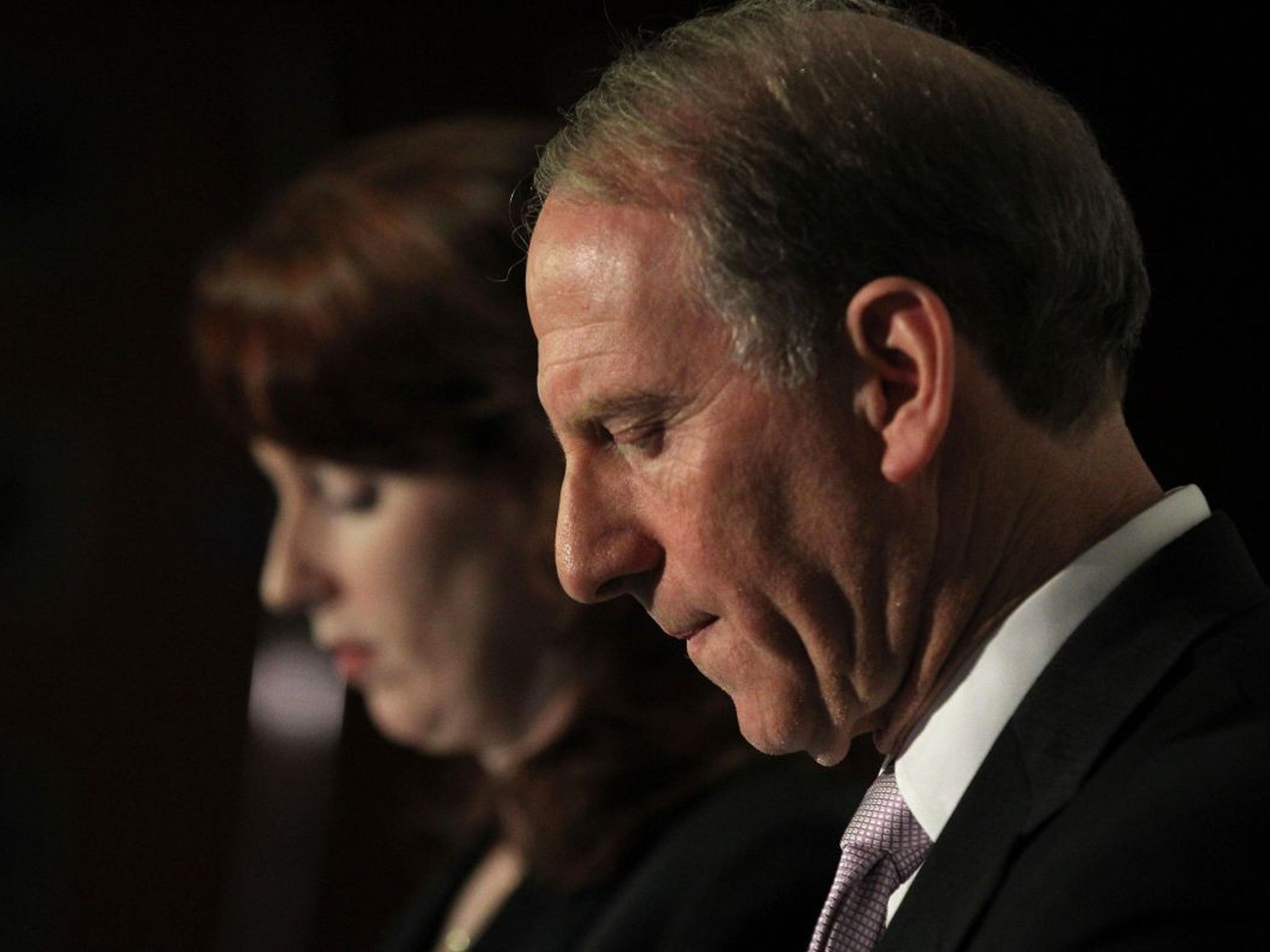Northern Ireland peace process talks end in stalemate after last-ditch overnight negotiations fail to meet end-of-year deadline
No consensus reached on final set of proposals to deal with flags, disputed parades and the legacy of the Troubles

Talks in Northern Ireland have failed to reach an agreement on key peace process issues before a strict end-of-year deadline.
The negotiations chaired by former US diplomat Dr Richard Haass went into a final, marathon session overnight, yet still ended in a disappointing stalemate.
Though Dr Haass insisted he had overseen “significant progress” in the course of the six-month process, he will now step back having failed to broker a deal.
The final attempt to get representatives from all five parties involved to agree a set of proposals began at 10 am yesterday, and effectively ran through to 5am this morning.
Emerging from the negotiations, Dr Haass said: “It would have been nice to come out here tonight and say we have got all five parties completely signed on to the text, but we are not there.”
The foreign relations thinktank boss and former US envoy to Northern Ireland had put forward a “compromise position” for consideration by the Democratic Unionist Party (DUP), Ulster Unionists, Alliance party, Social Democratic and Labour Party (SDLP) and Sinn Fein.
But while negotiators for the latter two nationalist groups said they were prepared to recommend the proposals to their parties, unionists indicated they still had major difficulties with elements of the text.
Dr Haass had been tasked with settling the three core issues at the heart of the ongoing peace process - the use of flags, permissions to conduct parades and the legacy of the past Troubles.
He said this morning that while nothing had been signed, the process should not be considered a failure.
“Success should not be measured by what we report to you tonight or what the party leaders report tonight - I would ask you to judge the success in six months, in a year, 18 months, in two years, that would give a much more realistic definition or yardstick of what constitutes success,” he said.
“What I believe what we have done is laid down solid enough foundations stones.”
Sinn Fein president Gerry Adams signalled his party's willingness to strike a full deal.
He said the proposals presented by Dr Haass represented a “compromise position” and provided the basis for agreement.
“They aren't perfect, we have had to stretch ourselves to embrace them,” he said.
Mr Adams insisted talks could not continue forever and at some point parties had to “call it”.
The SDLP said it would be conducting a consultation on the deal, but party leader Alasdair McDonnell said he would be recommending a general endorsement of the proposals.
On the other hand, DUP negotiator Jeffrey Donaldson said that while progress had been made there were still a number of unresolved problems.
“We do not have an agreement this evening but we are committed to continuing this work beyond now in dialogue with others to try and resolve the outstandiing issues that need to be addressed,” he said.
“We owe that to the people of Northern Ireland, especially to the innocent victims of terrorism who have suffered so much over the decades.”
One of the most contentious issues for unionists seems to be the language used in discussions of the past, with claims too much focus has been put on killings perpetrated by state forces.
UUP leader Mike Nesbitt said his party needed more time to examine the proposals.
“We will have an honest debate and hopefully form a final opinion at the end of that debate,” he said.
Finally, the Alliance party deputy leader Naomi Long, who was tasked with making a final call on behalf of her party, said she was willing to endorse proposals on the past, but not on flags and parades.
Dr Haass and talks vice-chair Dr Meghan O'Sullivan, a US foreign affairs expert, said they would have a limited role in any discussions from now on, though insisted they were not washing their hands of the process.
“We very much hope the parties reflect on this, discuss it with their leadership and then come back with a strong endorsement,” Dr Haass said. “Over the next week we will know a lot more but we are both confident this agreement will garner significant political support.”
Additional reporting by PA
Join our commenting forum
Join thought-provoking conversations, follow other Independent readers and see their replies
Comments
Bookmark popover
Removed from bookmarks